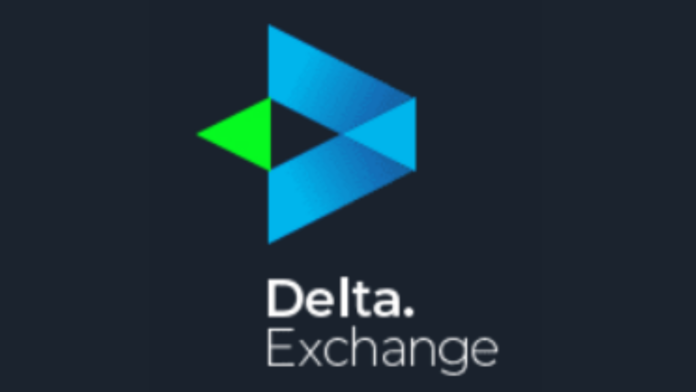DETO Delisting Leaves Investors Reeling, Trust in Indian Exchanges Wavers
Delta Exchange’s announcement to delist its native token, DETO, by September 15, 2024, has created an uproar in the Indian crypto community. Investors were informed that they could sell their DETO holdings on the spot market before the deadline. After this date, unsold tokens will be settled at the prevailing rate on September 16, effectively removing DETO from Delta’s trading platform. The news has hit investors hard, with the token’s value crashing by over 80%. Once valued at $0.60, DETO rapidly dropped to $0.11 as liquidity dried up across exchanges.
Many DETO holders, especially those with significant stakes, were left with little choice but to sell at a massive loss. Pushpendra, a social media influencer, openly voiced his frustration, stating that his $20,000 DETO holdings had effectively turned into “dust.” His comments reflect a broader sentiment of betrayal felt by many long-term investors who trusted Delta Exchange and its roadmap, particularly due to the involvement of well-known Indian tech entrepreneurs.
The fallout has raised concerns over the future of exchange-issued tokens, especially amid tightening regulatory frameworks in countries like India. Delta Exchange attributed its decision to regulatory challenges and a shift in its long-term strategy. However, this has done little to assuage fears that other platforms may follow suit, leading to further instability for exchange tokens.
Distrust Grows in Indian Exchanges
The sudden delisting of DETO has amplified concerns about the transparency and reliability of Indian cryptocurrency exchanges. Some investors are calling the move a potential “rug pull.” Although no evidence has emerged to back these claims, the abruptness of the decision and the subsequent market collapse have created a wave of distrust.
User CeeSats shared his worries about the broader implications for customer security. She highlighted the KYC (Know Your Customer) process, where exchanges collect sensitive personal data as part of regulatory compliance. Her concern revolves around the possibility that this data, now in the hands of an exchange facing difficulties, could fall into the wrong hands. She pointed out that once an exchange folds, there are no guarantees about the safety of customer data. “This is why KYC is dangerous,” he emphasised, noting that users remain exposed once an exchange goes down, with all their personal data potentially being compromised.
Further fuelling these concerns was Alsan, who took a harsher stance, urging users to steer clear of Indian crypto exchanges altogether. Citing the WazirX controversy as a cautionary tale, he remarked that Indian exchanges seem to lack the leadership and transparency required to foster trust in the market. For investors who have already been burnt by previous scandals, the sudden move by Delta Exchange only reinforces this perception.
WazirX Scandal and its Ongoing Legacy
The WazirX hack and subsequent legal disputes have left an indelible mark on the Indian cryptocurrency landscape. Once touted as one of the largest crypto exchanges in India, WazirX found itself embroiled in a money laundering investigation in 2021. Authorities accused the platform of facilitating $334.8 million worth of unauthorised transactions. The situation further spiralled when Binance, WazirX’s supposed parent company, distanced itself from the exchange. Binance’s CEO publicly claimed that it had no control over WazirX’s operations, despite earlier public statements suggesting otherwise.
The scandal created widespread panic among WazirX users, many of whom feared that their funds were no longer safe. The lack of clarity regarding the relationship between WazirX and Binance exacerbated these fears. At its core, the WazirX controversy showcased the fragility of investor trust when exchanges fail to provide consistent and transparent communication. The unresolved nature of the issue has led many to view Indian exchanges as vulnerable to both internal mismanagement and external regulatory pressures.
What Next for DETO Holders?
For DETO holders, the future is uncertain. After September 15, DETO will no longer be tradable on Delta Exchange, and users will be left with fewer options. While it may still be possible to trade DETO on decentralised exchanges (DEXs), the token’s steep drop in value and reduced liquidity make this a bleak prospect. Investors who are unable to exit before the delisting deadline may find themselves holding an asset with limited use or value.
The broader implications of this event go beyond the immediate losses for DETO holders. The cryptocurrency market, known for its volatility, is becoming increasingly shaped by regulatory shifts. As governments around the world tighten rules on digital currencies, exchanges will be forced to adapt. Whether through delisting tokens, altering operational strategies, or exiting certain markets altogether, platforms will need to navigate these regulatory landscapes carefully.
The Delta Exchange decision also raises important questions about the long-term sustainability of exchange tokens. While these tokens often provide additional utility, such as reduced trading fees or access to platform-specific services, they remain vulnerable to sudden shifts in platform strategy. Investors looking to hold such tokens need to weigh these risks carefully.
Trust and Transparency in the Future
Incidents like the DETO delisting and the WazirX scandal are stark reminders that transparency and trust are vital in space. While the decentralised nature of cryptocurrencies offers users greater freedom, it also comes with heightened risks. As exchanges grapple with regulatory pressures and evolving business models, they must prioritise clear communication with their users.
For the cryptocurrency market to continue maturing, platforms will need to build and maintain investor confidence. This means ensuring not only the security of funds but also the privacy and protection of sensitive user data. With incidents like the WazirX hack still fresh in people’s minds, exchanges will need to be proactive in addressing concerns and maintaining high standards of operational integrity.


